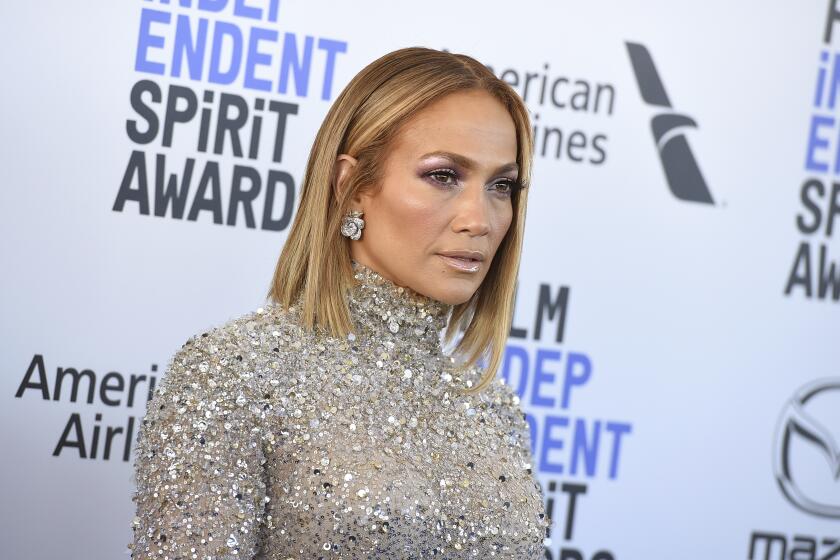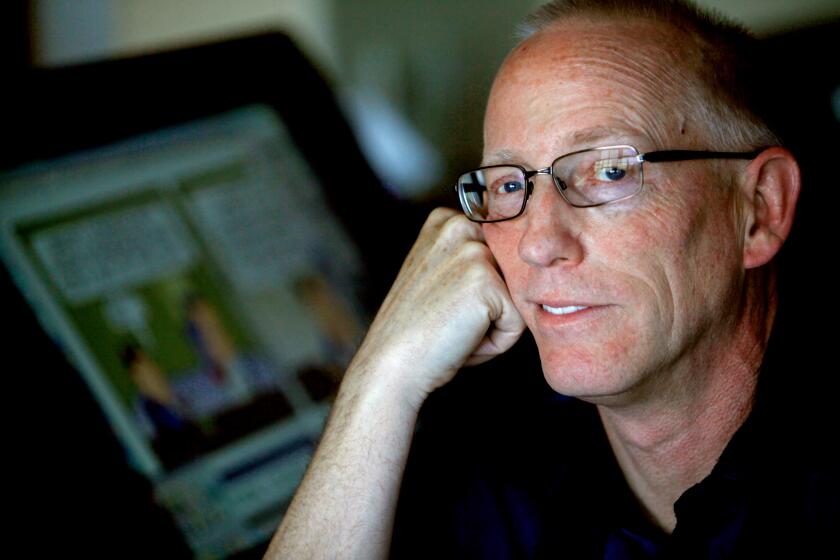Writers Guild Chief Is Retained Despite Doubts on Background
- Share via
The board of the union representing Hollywood TV and film writers has decided that Charles Holland should remain as president, despite questions over whether he embellished his military and college athletic careers.
The vote at the Writers Guild of America, West, was 10 to 6 in Holland’s favor. Directors who supported him said he was a skilled negotiator who had always been honest in his dealings with the board.
“I don’t think that any act of untruthfulness is trivial,” board member and Holland backer Ron Bass said Tuesday. “But this is a guy I know and have worked side by side with for 3 1/2 years.”
Those who voted against Holland said the guild’s credibility had suffered. They said they didn’t believe Holland had adequately addressed concerns about the truthfulness of his statements and warned that the matter wasn’t settled.
“The members are still concerned,” said board member Dan Wilcox, who opposed Holland. “I don’t think this will go away.”
Holland, through a guild spokeswoman, declined to comment.
In other business, the WGA board tapped a former president, Daniel Petrie Jr., as vice president.
He replaces Holland, who was elevated to the top spot when Victoria Riskin resigned. She left the presidency after an investigation determined that she had been ineligible to run for reelection in September because she hadn’t done enough writing to keep her membership up to date.
The board also formed a new governance committee to review a range of election procedures that have been questioned in the wake of the Riskin controversy.
Still, Eric Hughes, who ran against Riskin, and his advisor, Ronald Parker, whose protest resulted in Riskin’s removal, said the creation of a committee didn’t go far enough. They said they would file a formal complaint with the U.S. Labor Department that could result in a new election.
The debate over Holland’s past came after The Times reported this month that it could find no military or university records supporting Holland’s statements that he served as an intelligence officer with the Army Green Berets and attended the University of Illinois on a football scholarship.
His statements had been published in a profile in the guild magazine Written By.
Pentagon records show only that Holland served with the National Guard in Illinois and Massachusetts.
His college records show he has a degree from Illinois but don’t indicate that he played football there.
On Tuesday, WGA directors said Holland reiterated his comments about his past during a question-and-answer session with them.
He told them that he couldn’t release military records that he said would support his claim, because they are classified, the directors said.
They said he explained the other discrepancy by saying he played wide receiver at Illinois under a different name.
According to Wilcox and other directors, Holland told the board that his name was changed retroactively on university records, and that he was subsequently issued a replacement diploma.
University administrators say they have no records that indicate Holland attended the university under a different name.
Earlier, Holland provided The Times with the name under which he said he played football -- with the condition it not be printed. The university confirmed that a wide receiver with that name played for the Fighting Illini.
The Times located the player, now a member of the university’s athletic board who works in Arizona as an account executive for drug maker Eli Lilly & Co.
Wilcox and other directors said Holland disputed that, saying the man whose name he used does not work in the pharmaceutical industry.
In its official statement, the WGA said it took the allegations about Holland seriously and acknowledged that the board was divided.
Director Elias Davis, who voted against Holland, said he accepted the majority decision.
But, he added: “I had grave reservations about Charles Holland’s ability to lead due to the revelations in the Los Angeles Times and the reaction I have gotten from members of the guild to the reports. Because of that I did not give him by vote of confidence.”
Another director who supported Holland, Peter Lefcourt, commended the board for tackling the issue and said the willingness to announce the split proved it wasn’t papering over the issue.
For his part, Parker said the directors hadn’t made “an acceptable response” to demands for institutional reform. Parker, who filed his protest immediately after the election in September, said he would ask federal labor officials to conduct a broad investigation of guild election practices, based in part on hundreds of pages of witness statements that were compiled by a guild-appointed hearing officer during a review of Riskin’s election.
A spokesman for the Labor Department said it couldn’t comment on investigations.
More to Read
The biggest entertainment stories
Get our big stories about Hollywood, film, television, music, arts, culture and more right in your inbox as soon as they publish.
You may occasionally receive promotional content from the Los Angeles Times.










